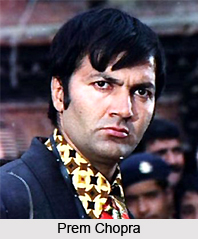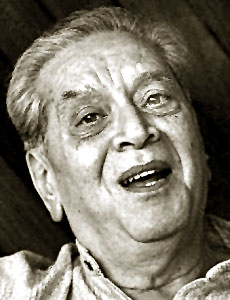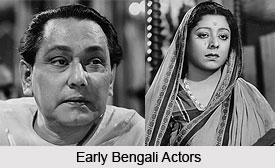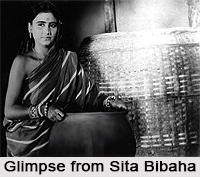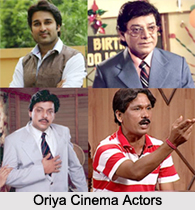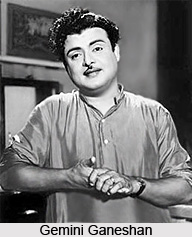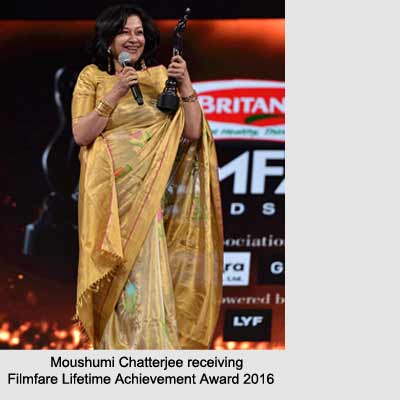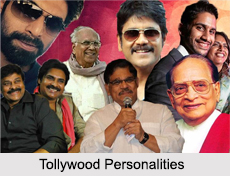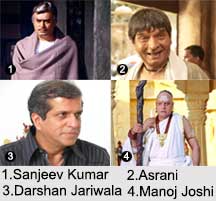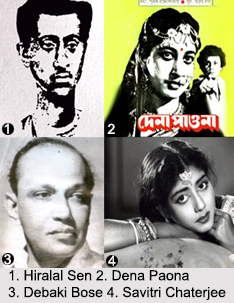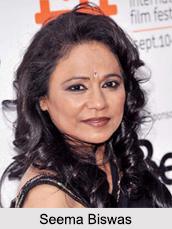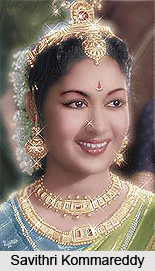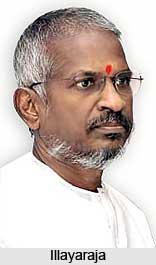 Illayaraja is a renowned film composer, instrumentalist, singer and a lyricist. He is considered as one of the best music composers in India and is regarded as a maestro. He was the most outstanding composers of music in South Indian films during the 1970`s, 80`s and early 1990`s. He has composed around 4500 songs and conducted music for over 950 Indian films in various languages including Tamil, Kannada, Telegu, Malalyalam and Hindi, in a career spanning more than 30 years. He has been honoured with the prestigious Padma Bhushan Award and has received four Indian National Film Awards.
Illayaraja is a renowned film composer, instrumentalist, singer and a lyricist. He is considered as one of the best music composers in India and is regarded as a maestro. He was the most outstanding composers of music in South Indian films during the 1970`s, 80`s and early 1990`s. He has composed around 4500 songs and conducted music for over 950 Indian films in various languages including Tamil, Kannada, Telegu, Malalyalam and Hindi, in a career spanning more than 30 years. He has been honoured with the prestigious Padma Bhushan Award and has received four Indian National Film Awards.
Early Life of Illayaraja
Illayaraja was born on 2nd June 1943, as Gnanadesikan in Pannaipuram, in Theni district of Tamil Nadu. He was the third son of Ramaswamy and Chinnathayammal. At the age of fourteen, he joined a travelling musical troupe. In 1968 he arrived in Chennai, formerly known as Chennai, where he was the student of Dhanraj, a music teacher. He learnt about western classical music and the compositions of Bach, Beethoven, Mozart and Schubert fascinated him. One of his greatest achievements was when he received a gold medal in classical guitar after completing a course from the Trinity College of Music, London. Illayaraja`s style of music was unique. From his childhood he was influenced by Tamil folk songs. As he provided music for the films he blended the Tamil folk music with Western music.
Career of Illayaraja
Illayaraja played guitar for a band, and also worked as a guitarist, organist and keyboardist for music composers like Salil Chowdhury in the 1970s. He also worked under G. K.Venkatesh, composer of Kannada films, as an assistant. His career took off with the Tamil film, Annakkili which was produced by Panchu Arunachalam. He introduced the Western Classical music harmonies and string instruments in Indian cinema. He created a fusion of Tamil and Western genres that included pop, bossa nova, jazz, acoustic guitar based Western folk, psychedelic, flamenco, funk, dance music or disco numbers, doo-wop, rock and roll, march, pathos, Afro-tribal, Indian classical and Tamil folk music.
Illayaraja had made a reputation as a music composer by the mid-1980s. He collaborated with great lyricists such as Veturi Sundararama Murthy, Gulzar, Sirivennela Sitaramasastri, Kannadasan, T. S. Rangarajan and Vairamuthu and has associated with many directors like K. Balachander, Bharathi Raaja, Singeetham Srinivasa Rao, K. Vishwanath, Balu Mahendra, Vamsy, Mani Ratnam and Kamal Haasan.
Such outstanding flair fetched him the National Film Award thrice for Saagara Sangamam (1984), Sindhu Bhairavi (1986) and Rudraveena (1989) respectively. Illayaraja has composed music for films in several languages: Tamil, Telugu, Malayalam, Kannada and Hindi. His works in Bollywood include Sadma (1983), Lajja (2001) and Cheeni Kum (2007). His fusion music was widely accepted by the audiences including the rural masses.
Illayaraja revolutionized the Tamil film industry with his music. Coming to the limelight in 1970s, he continued his work till the early 1990s. With an experience of 30 years behind him he can be rightly referred to as the predecessor of innovative music directors, like, AR Rahman.
His music instruments would often include synthesizers, rhythm boxes, keyboards and electric guitar, saxophone, flutes and traditional orchestras, such as, tabla, veena, mridangam, venu, nadaswaram and dholak. Versatile singers like Lata Mangeshkar, SP Balasubramanium, Yesudas, Chitra, S Janaki, Asha Bhosle, Malaysia Vasudevan, P Suseela and others gave voice to his unique blend of music. In later part of the 1990s he had composed devotional and other non-film music as well. His first two albums, "How to Name It?" (1986) and "Nothing but Wind" (1988), were explorations in the fusion of Indian and Western classical music. Even The popular hip-hop band, The Black Eyed Peas, took inspiration from Illayaraja`s composition "Unakkum Ennakum", for the tune "The Elephunk Theme".
He also started "Paavalar Creations", a film production company and produced few Tamil movies.
Personal Life of Illayaraja
Illayaraja is married to Jeeva, and has two sons, Yuvan Shankar Raja and Karthik Raja, and a daughter named Bhavatharini, who are also singers and composers.
Awards of Illayaraja
He was honoured with four national Film Awards, for Saagara Sangamam in 1984, Sindhu Bhairavi in 1986 , Rudra Veena in 1989 and Pazhassi Raja in 2009.
Some of his notable works include Tamil, Telegu, Malayalam and Kannada films.
Tamil Films
| Year |
Name |
Year |
Name |
| 1978 |
Sigappu Rojakkal |
1991 |
Thalapathi |
| 1981 |
Raja Paarvai, Tik Tik Tik |
1997 |
Kadhalukku Mariyadhai |
| 1983 |
Moondram Pirai |
1999 |
Sethu |
| 1987 |
Mouna Raagam, Punnagai Mannan |
2002 |
Azhagi |
| 1987 |
Nayakan |
2005 |
Adhu Oru Kana Kaalam |
| 1989 |
Apoorva Sagodharargal, Vetri Vizha |
2008 |
Ajantha, Naan Kadavul, Nandalala, Jagan Mohini, Chinthamani, Manikandan |
Malayalam Films
| Aaru manikoor |
Yathra |
Man of the match |
| Dooram arike |
Kaveri |
Guru |
| Manju Moodalmanju |
Poomukhappadiyil ninneyum kathu |
Kaliyoonjalu |
| Garjjanam |
Moonnam Pakkam |
Anuragakottaram |
| Aalolam |
Adharvam |
Manjeera dhwani |
| Olangal |
Chaithram |
Kallu kondoru pennu |
| Ragadeepam |
Geethanjali |
Kochukochu santhoshangal |
| Oomakkuyil |
Anaswaram |
Manassinakkare |
| Pinnilavu |
Ente sooryaputhrikku |
Pachakkuthira |
| Sandhyakku virinja poovu |
Apaaratha |
Sooryan |
| Mangalam nerunnu |
Pappayude swantham appoos |
Vinodayathra |
| Onnanu nammal |
Jackpot |
Innathe Chinthavishayam |
| Unaroo |
Kalapani |
- |
Telugu Films
| Mantrigari Viyyankudu |
Rudraveena |
Abhinandana |
| Saagara Sangamam |
Swarna Kamalam |
Dharmakshetram |
| Abhilasha |
Shiva |
Sambhu |
| Challenge |
Jagadeka Veerudu Athiloka Sundari |
Anumanaspadam |
| Swathi Muthyam |
Rudranetra |
Sunny |
| Anweshana |
Kondaveeti Donga |
Mallepoovu |
 Illayaraja is a renowned film composer, instrumentalist, singer and a lyricist. He is considered as one of the best music composers in India and is regarded as a maestro. He was the most outstanding composers of music in South Indian films during the 1970`s, 80`s and early 1990`s. He has composed around 4500 songs and conducted music for over 950 Indian films in various languages including Tamil, Kannada, Telegu, Malalyalam and Hindi, in a career spanning more than 30 years. He has been honoured with the prestigious Padma Bhushan Award and has received four Indian National Film Awards.
Illayaraja is a renowned film composer, instrumentalist, singer and a lyricist. He is considered as one of the best music composers in India and is regarded as a maestro. He was the most outstanding composers of music in South Indian films during the 1970`s, 80`s and early 1990`s. He has composed around 4500 songs and conducted music for over 950 Indian films in various languages including Tamil, Kannada, Telegu, Malalyalam and Hindi, in a career spanning more than 30 years. He has been honoured with the prestigious Padma Bhushan Award and has received four Indian National Film Awards.








